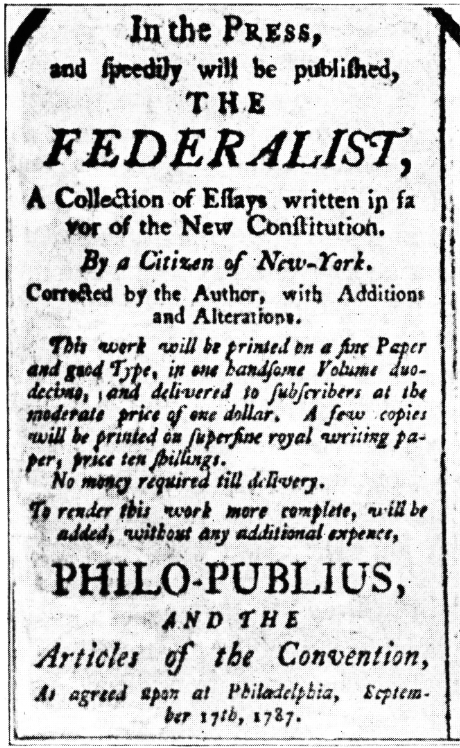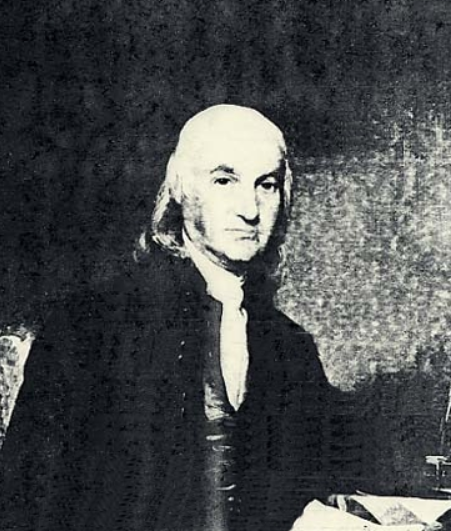Should The Feds Regulate Interstate Trade? (Federalist 42)
In Federalist #42, James Madison continues his review of the powers given to the National Government by the Constitution.
Madison uses this Paper two cover the second and third important powers. These are the ability to sign treaties with foreign nations and the authority to regulate interstate trade.
He concludes with a discussion on the naturalization of immigrants.
Federalist #42
James Madison
January 22, 1788
Intercourse With Foreign Nations
To begin Federalist #42, James Madison points out that the ability to sign treaties with other countries had already been established in the Articles of Confederation.
He notes that the only real change the Constitution makes is to allow for the National Government to make treaties of commerce in addition to peace. This was a common complaint of the Articles and Madison assumes (correctly) that most people did not mind this adjustment.
Interestingly, James uses the slave trade as an example. He says that, while it was unfortunate the ‘barbarism’ of slavery was not outlawed completely, the new Constitution has limited it to 20 years as a compromise and could theoretically omit it perminately after that.
Intercourse Between States
Madison then moves on to discuss the Constitution’s ability to regulate commerce between States.
This is a bit more controversial, as many Anti-Federalists viewed such an authority as an assumption of State power.
James reviews each point in detail, but for the purposes of this review we will just outline certain important points.
Most importantly, Madison recognizes that for the National Government to regulate foreign trade, it must have the power to compel the States to obey the agreements. Spain, for example, might not make an agreement with the United States if Rhode Island won’t adhere to it.
Furthermore, Native American Nations, whose territory overlapped with multiple States, would be much easier to have discussions with if they only needed to keep up with one consolidated government.
Madison then turns to another point that most Anti-Federalists would agree with...money. While the Articles of Confederation gave the Union the ability to coin money, the Constitution took it one step further and gave the Federal Government the authority to regulate the value of money.
Naturalization
Madison ends Federalist #42 with a discussion of the naturalization of citizens.
An overwhelming majority of the Founders realized the importance of immigration to the growth of their States. However, with thirteen separate States came thirteen separate rules for immigration.
The Constitution set one standard for the naturalization of new arrivals which, according to Mr. Madison, would prevent criminals from using the laws of one State to break the laws of another.
Have you missed our previous Federalist Friday articles?
Take a look at the full list here.
You might also like this article on James Madison’s Congressional Campaign:
Madison Beats Monroe - The Small Election with Big Implications
The Federalist Papers are written in 18th century English and can be difficult to understand.
‘The Accessible Federalist’ takes some of the most important Papers and translates them into modern English, making them easier for us 21st century readers.
If you’d like a copy you can get one through the Amazon affiliate link below (you’ll support this site, but don’t worry, Amazon pays me while your price stays the same).
Want to get fun American Revolution articles straight to your inbox every morning?
Subscribe to my email list here.
You can also support this site on Patreon by clicking here.
Thank you for your support!






